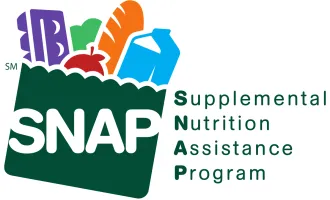Top 10 Things You Need to Know About the Student Financial Aid Office
At the beginning of every school year, I hear stories. Students share information about financial aid that they learned from undergraduate school, or from a friend or roommate. Many of these stories won’t match your UCSF experience. So, in the best tradition of late-night television, here are the top ten things you need to know about your financial aid and the Student Financial Aid Office:
Number 10: The Registrar and Financial Aid Office offer a shared front desk service to students, and we are open for business from 8 a.m. to 5 p.m. Monday through Friday. Students with questions about registration (e.g. California residency, paying fees, transcripts, and verifications) or financial aid (e.g. disbursement schedules, questions about your awards) can visit us on the second floor of Millberry Union West to receive assistance.
Number 9: If you have questions or concerns that won’t take long to resolve, you can drop in during business hours, and generally see a Drop-In Adviser within a few minutes. If you have something that will take longer to resolve, call and make an appointment to see your assigned advisor—you will be able to schedule an appointment and see your advisor within a few days.
Number 8: We’ve been keeping an eye on the economy, just like you have. If you are having problems making ends meet, make an appointment to see your financial aid advisor. We can help you with budgeting tips, but if you have a real problem, sometimes more aid can be awarded.
Here’s the Advisor Caseload (check our website at finaid.ucsf.edu for contact information):
- Dentistry - Ron James
- Medicine - Annie Osborne
- Graduate Division - Lily Ling
- Nursing - Lily Ling
- Pharmacy - Aaron Lee
- Physical Therapy - Lily Ling
- Veterans - Christine Adachi
Number 7: Students with children should know that the financial aid budget can be adjusted to account for some of your child care costs.
Number 6: UCSF has a great health care plan. But if some of your medical or dental costs aren’t being covered by insurance, financial aid can often be increased to help pay unreimbursed expenses.
Number 5: If your situation changes during the year, let us know. Maybe your spouse lost a job, you plan to have a child, you’re thinking about extending your program, your roommate won’t talk to you anymore, or you just have questions about how to repay your student loans once you graduate—we can help!
Number 4: Get to know your financial aid adviser. That person will be helpful when you have questions about your financial aid and can become a helpful ally for you.
Number 3: We have a staff person here who is totally focused on helping you understand your loan repayment options and budget strategies. You should be hearing from Annie Osborne while you’re here. She makes presentations during the year and also meets with individuals.
Number 2: If you haven’t applied yet, it’s not too late. We take applications throughout the year, although you may have missed priority deadlines.
… and the Number 1 thing you need to know about financial aid: In April 2012, the Chancellor launched a new education fund-raising initiative with a target of $100 million by 2014-15. She donated $1 million of her own money and challenged each professional school to raise matching funds for student financial support—the first time a campuswide effort of this kind has been undertaken. The initiative is aimed at offsetting diminished state funding, and once the funding goal is met, will be used for new scholarships, curriculum innovation, inter-professional education, and teaching facilities. The first scholarships connected with this activity will be awarded in 2012-13.
Millberry Union 201 West
Open Monday–Friday 7:30 a.m. to 5 p.m.
URL: finaid.ucsf.edu
Telephone: (415) 476-4181
Email: finaid@ucsf.edu


